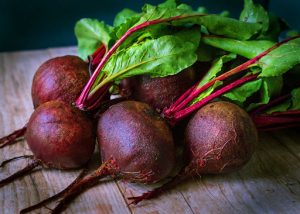The consumption of vegetables is an invariable ritual of everyone who follows the rules of proper nutrition. The variety of vegetables allows you to have a varied menu and make a variety of delicious meals that benefit your health. One of these vegetables is beetroot, which gives you a lot of nutrients throughout the year. This vegetable can be stored all year round, but during the harvest season, it has the highest concentration of beneficial minerals and vitamins.

Even in ancient times, people used beets as food and medicine. But even modern scientists have confirmed the unique properties of beetroot and their effect on human health. They are convinced that beetroot is a unique vegetable that should be on the table in every person.
Scientists appreciate the health benefits of beetroot because it has a unique set of elements that cannot be found in other vegetables. Moreover, these substances are not destroyed during heat treatment, and sometimes its benefits only increase.
The beneficial properties of beets are due to their biochemical composition.
Beetroot is the reach of the right carbohydrates that your body needs for energy. It contains glucose, fructose, sucrose, and pectins. Also, by eating one vegetable, you get a lot of amino acids valine, betanin, lysine, histidine, arginine, etc. Not every vegetable can boast of such a concentration of amino acids.
Eating beets will fill your body with vitamins and minerals such as:
- B, BB,
- carotenoids,
- folic acid,
- pantothenic acid,
- copper,
- iron,
- potassium,
- magnesium,
- manganese,
- iodine,
- zinc, etc.
Beetroot also contains valuable fiber, which helps your intestines work well and removes free radicals. Moreover, this vegetable has a low-calorie content (40 calories per 100 grams).
Useful properties of beets.
Fiber, which is found in large quantities in beetroot, improves metabolic processes in your body and enhances intestinal motility. Except for fiber, the acids contained in beets also cleanse your intestines from putrid processes and improve the microbiome in it. Thus, you improve bowel function and promote the absorption of nutrients.
Beetroot prevents liver disease and high blood pressure. Betaine is the cause of this effect. It prevents the accumulation of fat in your body and promotes its breakdown. Therefore, people who suffer from obesity should consume beetroot.
Also, beetroot help prevents the appearance of various diseases or help in their treatment. Namely:
- helps in the treatment of atherosclerosis and hypertension;
- has a diuretic and laxative effect;
- has an anti-inflammatory effect;
- helps the body fight depression;
- helps get rid of a hangover.
Pregnant women should include beetroot in their diet due to the presence of folic acid in it, which is necessary for the healthy development of the fetus. This acid helps build a healthy nervous system in a baby. Plus, beetroot helps prevent constipation, which is a common problem for pregnant women.

The high iodine content of beetroot makes it an essential food for people with thyroid disease or atherosclerosis.
Scientists also suggest that betanin helps prevent the growth of cancerous tumors, but more research is needed to confirm this fact.
Well, of course, people who want to keep their weight normal can use this vegetable because of its low-calorie content and influence on metabolic processes.
Contraindications to the consumption of beetroot.
Despite its super-usefulness of beetroot, there is a category of people who should use beets with caution or in limited quantities.
Therefore, if you have osteoporosis, diabetes, or urolithiasis, avoid beetroot consumption.
Beets do not allow calcium to be consumed, which negatively affects the health of your joints.
Also, beetroot is high in sugar, so people with diabetes should eat beets in limited quantities.
Comments are closed, but trackbacks and pingbacks are open.